Categories
Social Sciences
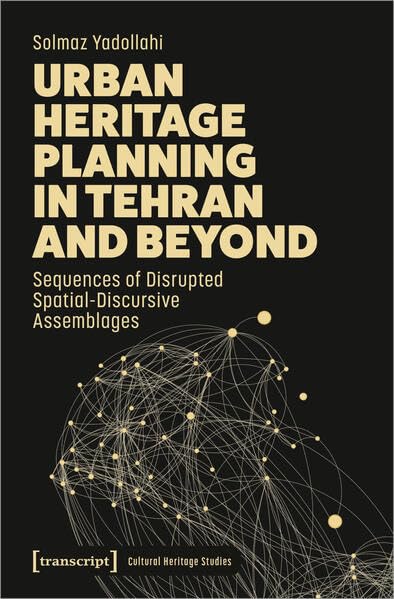
Urban Heritage Planning in Tehran and Beyond: Sequences of Disrupted Spatial-Discursive Assemblages
Solmaz Yadollahi
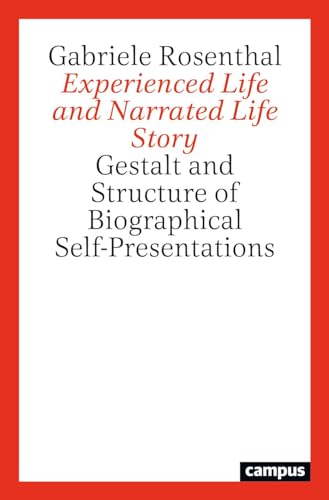
Experienced Life and Narrated Life Story: Gestalt and Structure of Biographical Self-Presentations
Gabriele Rosenthal

Readings on the Psychology of Place
David Canter
In the World Library of Psychologists series, international experts present career-long collections of what they judge to be their most interesting publications – extracts from books, key articles, research findings and practical and theoretical contributions. In this fascinating volume, Professor David Canter refl ects on a career that has earned him an international reputation as one of the U.K.’s most eminent applied social psychologists and a pioneer in the fi eld of environmental psychology, through a selection of papers that illustrate one of the foundational themes of his research the psychology of place. Split into four parts, each with a new introduction written by the author, the book provides insights into theories, methods and applications of place psychology. Covering a range of publications from early research in the 1960s up to recent explorations, this volume provides the unfolding research that elaborates this seminal theory, offering rich perspectives on how places gain their significance and meaning. Featuring specially written commentary by the author contextualizing the selections and providing an intimate overview of his career, this collection of key publications offers a unique and compelling insight into decades of ground-breaking work, making it an essential resource for all those engaged or interested in the study of places.

Peasants, Capitalism, and the Work of Eric R. Wolf
Mark Tilzey, Fraser Sugden, David Seddon
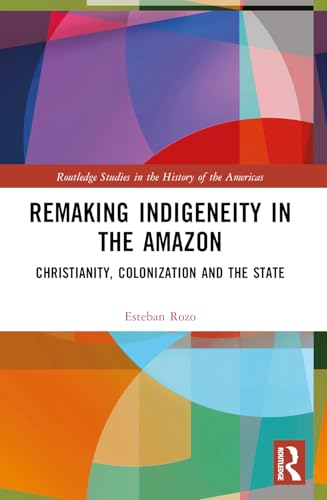
Remaking Indigeneity in the Amazon
Esteban Rozo

Russia’s War in Ukraine 2022: Personal Experiences of Ukrainian Scholars
Tamara Martsenyuk
When Russia attacked Ukraine on February 24, 2022, academic life and other social activities in Ukraine changed drastically. Scholars who either stayed in their cities or were forced to evacuate gained first-hand participant observation experience of war. Their teaching and research have been interrupted, but they continued to reflect on social, political, and economic events in Ukraine. This book is a collection of personal reflections by scholars of different disciplines, offering a variety of perspectives on Russia’s war against Ukraine. We immerse in the personal experiences and stories of researchers who reflect on their academic and analytical backgrounds―sociology, political science, international relations, and literature. This unique collection offers not only fascinating and shocking insights from Ukrainian citizens but also the thoughts and reflections of scholars of several fields that help us better understand the situation in Ukrainian society during the war.

Population Control Policies in China and India
Gabe T. Wang
This book comprehensively compares the development of population control policies in China and India, their implementations, and the population changes over the past seven decades. Analyzing how populations have changed and affected socioeconomic development in the two societies, this book systematically compares China and India through social and cultural factors, including religion and traditional perspectives on population, ethnicity and language, social classes, family, social status and education of women, and government functions. A brief introduction discusses how China has developed into a highly homogenous society and how India has developed into a highly diversified nation in history, and the influence of other countries on these two societies. With empirical data, the book analyzes how population changes are strongly correlated with economic development in the two most populous societies. An insightful discussion of the population issues with a world perspective and historical understanding of China and India is also provided. This book will be valuable reading to students and researchers interested in knowing more about the population control policies, population changes, and cultures and societies in China and India.

Oxford Studies in Philosophy of Law Volume 5
Leslie Green, Brian Leiter
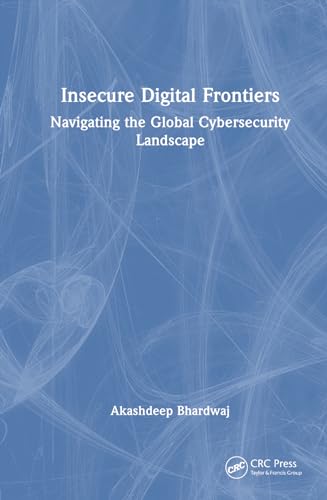
Insecure Digital Frontiers: Navigating the Global Cybersecurity Landscape
Akashdeep Bhardwaj
‘Insecure Digital Frontiers’ is an immersive exploration into the tumultuous realm of cybersecurity, where the ever-expanding digital frontiers are both the battleground and the prize. From the shadows of cybercriminal exploits to the sophisticated dance of advanced persistence threats, this book delves into the vulnerabilities that define our interconnected world. With a panoramic lens, it navigates through the challenges and opportunities that shape the global cybersecurity landscape, offering readers a comprehensive understanding of the insecurities that permeate our digital existence. ‘Insecure Digital Frontiers’ is not just a book; it is an exploration of the insecurities that define our digital age. It matters because it goes beyond the surface, unraveling the complexities of cyber threats while providing actionable insights for individuals, organizations, and policymakers. In a world where the digital frontier is both a promise and a peril, this book serves as a guide for navigating the insecurities that define our interconnected existence. Embark on this journey through the "Insecure Digital Frontiers" and discover the vulnerabilities that lurk in the shadows, the innovations that promise security, and the collective responsibility we share in securing our digital future.
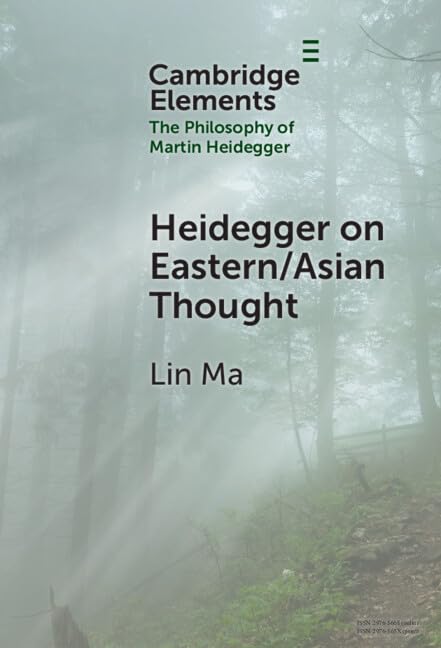
Heidegger on Eastern/Asian Thought
Lin Ma
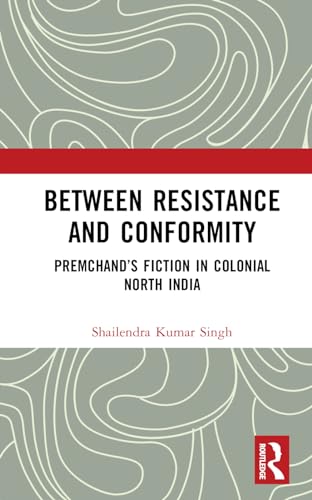
Between Resistance and Conformity
Shailendra Kumar Singh
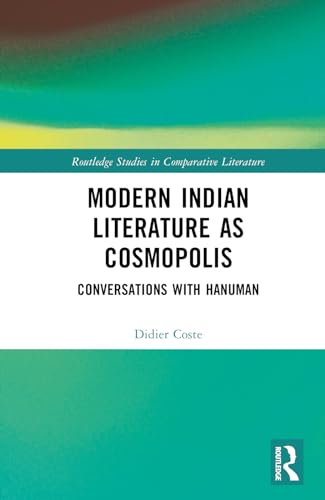
Modern Indian Literature as Cosmopolis
Didier Coste
This book redefines modern Indian literature from a cosmopolitan comparative perspective inclusive of literature in English from India and the diaspora, in native languages, and works by non-Indians. It shows how, since the mid-19th century, Indian literary modernity pursued the conjunction of the sensuous and ethical/spiritual that characterized its three traditions (Sanskritik, Persian, and folk culture) while the encounter, both receptive and oppositional, with “the West” vastly expanded the Indian literary sphere. Aesthetics and ethics are not antithetical in the Indian cultural space, but the quest for an exclusive Indian identity versus universalist approaches offsets concerns for social justice as well as enjoyable embodied communication. The literary constellation, in many languages, now formed in and around India can be better apprehended as a virtual Cosmopolis, a commonwealth of elaborate emotions. The versatile figure of Hanuman metaphorically flies across this Ocean of Stories to make us discover new worlds of experience.

The Handbook of Labour Unions
Gregor Gall
Before the 2023 cost-of-living crisis, some believed that the Covid-19 pandemic had ushered in a new era of state intervention and the end of neoliberalism. This was a forlorn hope, as governments intervened precisely to preserve the status quo. Growing levels of income and wage inequality, the precaritization of many sections of the labour force and proletarianization of many in the highly unionised professional middle classes have made labour unions as salient as ever. This handbook assembles an array of experts to critically engage with the debates and discussions about the role and purpose of unions and the many means by which they seek to attain them. The book provides insights into how challenges and problems may be surmounted and aims to fuse the understanding of the past and present to provide a general guide for shaping the future.

Public Health in Sub-Saharan Africa
John Fulton, Jonathan L Ling, Philip Anyanwu
This fascinating collection shines a social epidemiological spotlight onto the key public health issues effecting sub-Saharan Africa today. Beginning with the legacy of colonial rule, the book outlines the complex interplay between population health and a range of social, economic and cultural factors. It shows how social epidemiological methods can offer a deeper understanding of population health, and features chapters on a range of infectious diseases which continue to have a devastating impact on the region, including Sickle Cell Disease, HIV /AIDS, Leprosy and Ebola. The final section of the book includes a series of case studies where social epidemiological methods have been used to explore specific public health issues. Providing a timely overview of the relationship between social systems and human biology in the region, this important book will interest students and researchers across Public Health, Medicine and African Studies
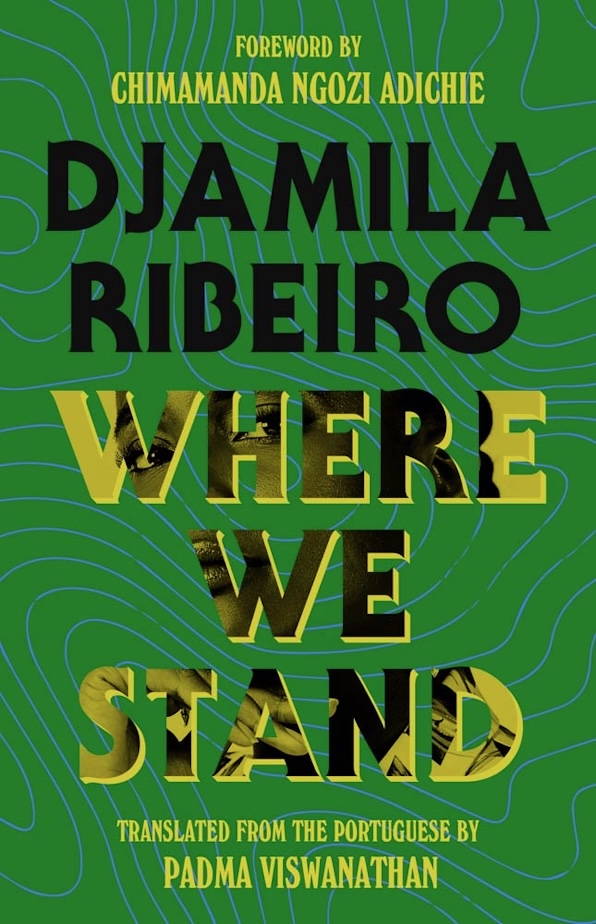
Where We Stand
Djamila Ribeiro, Padma Viswanathan, Chimamanda Ngozi Adichie
The instant bestseller from Djamila Ribeiro that sparked a major Black feminist movement in Brazil In a society shaped by the legacies of enslavement, white supremacy, and sexism, who has the right to a voice? In this elegant essay, Djamila Ribeiro offers a compelling intervention into contemporary discussions of power and identity: the concept of "speaking place." A crucial component of conversations on race and gender in Brazil, speaking place is the idea that everyone has a social position in the world, and what we are able to say, and how it is received by others, depends on it. Ribeiro highlights the precarious position of the Black woman as “the other of the other”—located on the margins of conversations about race, which often focus on men, and on the fringes of feminism, which centers white women. Tracing the history of Black feminist thought through several centuries, she examines the ways that Black women have been silenced, ignored, and punished for speaking. Building on feminist standpoint theory, and in conversation with the works of Sojourner Truth, bell hooks, Audre Lorde, and others, Ribeiro invites all of us to recognize where we stand, to imagine geographies different from those we’ve inherited, and to speak a more humane world into being.
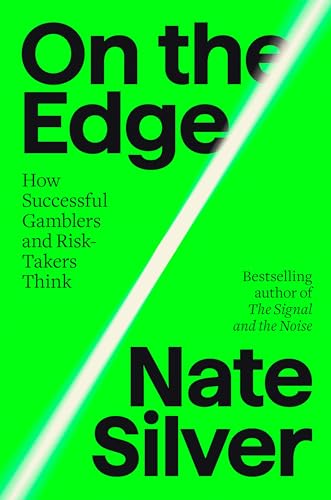
On the Edge: The Art of Risking Everything
Nate Silver
From the New York Times bestselling author of The Signal and the Noise, the definitive guide to our era of risk—and the players raising the stakes In the bestselling The Signal and the Noise, Nate Silver showed how forecasting would define the age of Big Data. Now, in this timely and riveting new book, Silver investigates "The River," or those whose mastery of risk allows them to shape—and dominate—so much of modern life. These professional risk takers—poker players and hedge fund managers, crypto true-believers and blue-chip art collectors—can teach us much about navigating the uncertainty of the 21st century. By embedding within these worlds, Silver offers insight into a range of issues that affect us all, from the frontiers of finance to the future of AI.The River has increasing amounts of wealth and power in our society, and understanding their mindset—including the flaws in their thinking—is key to understanding what drives technology and the global economy today. There are certain commonalities in this otherwise diverse high tolerance for risk; appreciation of uncertainty; affinity for numbers; skill at de-coupling; self-reliance and a distrust of the conventional wisdom. For the River, complexity is baked in, and the work is how to navigate it, without going beyond the pale.Taking us behind-the-scenes from casinos to venture capital firms to meetings of the effective altruism movement, On the Edge is a deeply-reported, all-access journey into a hidden world of powerbrokers and risk takers.
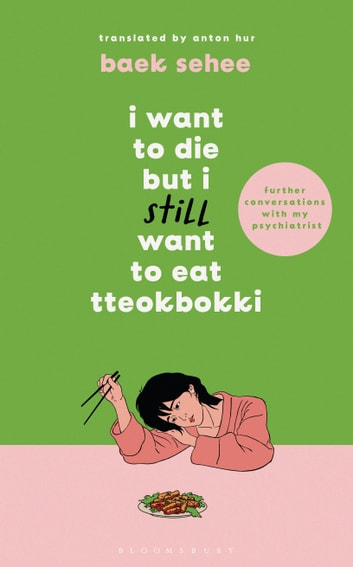
I Want to Die but I Still Want to Eat Tteokbokki: Further Conversations With My Psychiatrist
Baek Se-hee, Anton Hur
Baek Sehee is a successful young social media director at a publishing house when she begins seeing a psychiatrist about her – what to call it? – depression? She feels persistently low, anxious, endlessly self-doubting, but also highly judgemental of others. She hides her feelings well at work and with friends; adept at performing the calmness, even ease, her lifestyle demands. The effort is exhausting, overwhelming, and keeps her from forming deep relationships. This can't be normal. But if she's so hopeless, why can she always summon a desire for her favourite street food, the hot, spicy rice cake, tteokbokki? Is this just what life is like? Recording her dialogues with her psychiatrist over a 12-week period, Baek begins to disentangle the feedback loops, knee-jerk reactions and harmful behaviours that keep her locked in a cycle of self-abuse. Part memoir, part self-help book.
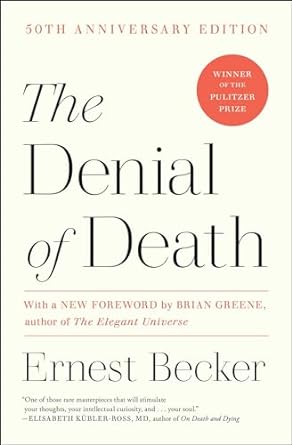
The Denial of Death
Ernest Becker
Winner of the Pulitzer prize in 1974 and the culmination of a life's work, The Denial of Death is Ernest Becker's brilliant and impassioned answer to the "why" of human existence. In bold contrast to the predominant Freudian school of thought, Becker tackles the problem of the vital lie -- man's refusal to acknowledge his own mortality. In doing so, he sheds new light on the nature of humanity and issues a call to life and its living that still resonates more than twenty years after its writing.

The Canal Murders
J.R. Ellis
Life moves at a slower pace on the canals. But death always comes when you least expect it. The last thing DS Stephanie Johnson and DS Andy Carter expected during their much-needed canal holiday was a murder. When retired folk musician Annie Shipton is found stabbed through the neck at the helm of her barge, the couple can’t help investigating the seemingly impossible crime. Nobody else boarded Annie’s boat―so how was she killed from behind? With the method a perplexing mystery, DCI Oldroyd is summoned from Harrogate, and it’s not long before the detectives have a long list of potential suspects with a motive to want Annie dead. There’s the young cyclist she argued with over access to the towpath, an ambitious and arrogant local developer she clashed with repeatedly, an estranged husband…and more than a few lingering issues with her former bandmates, most of whom live along the canal. When a second murder sends shockwaves through the community, the locals start talking about a curse on the waterway. It seems the killer will go to any lengths to avoid detection. But can Oldroyd hunt them down before someone else becomes the next target?

Uncomfortable Conversations with a Jew
Emmanuel Acho, Noa Tishby
From two New York Times bestselling authors, a timely, disarmingly honest, and thought-provoking investigation into antisemitism that connects the dots between the tropes and hatred of the past to our current complicated moment. For Emmanuel Acho and Noa Tishby no question about Jews is off-limits. They go there. They cover Jews and money. Jews and power. Jews and privilege. Jews and white privilege. The Black and Jewish struggle. Emmanuel asks, Did Jews kill Jesus? To which Noa responds, “Why are Jewish people history’s favorite scapegoat?” They unpack Judaism Is it a religion, culture, a peoplehood, or a race? Are you antisemitic if you’re anti-Zionist? The questions—and answers—might make you squirm, but together, they explain the tropes, stereotypes, and catalysts of antisemitism in America today. The topics are complicated and Acho and Tishby bring vastly different perspectives. Tishby is an outspoken Israeli American. Acho is a mild-mannered son of a Nigerian American pastor. But they share a an uncanny ability to make complicated ideas easy to understand so anyone can follow the straight line from the past to our immediate moment—and then see around corners. Acho and Tishby are united by the core belief that hatred toward one group is never if you see the smoke of bigotry in one place, expect that we will all be in the fire. Informative and accessible, Uncomfortable Conversations with a Jew has a unique Acho asks questions and Tishby answers them with deeply personal, historical, and political responses. This book will enable anyone to explain—and identify—what Jewish hatred looks like. It is a much-needed lexicon for this fraught moment in Jewish history. As Acho says, “Proximity breeds care and distance breeds fear.”
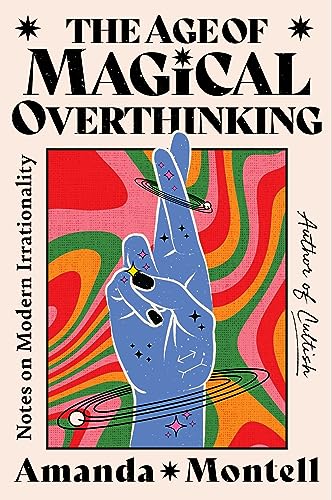
The Age of Magical Overthinking: Notes on Modern Irrationality
Amanda Montell
From the bestselling author of Cultish and host of the podcast Sounds Like a Cult, a delicious blend of cultural criticism and personal narrative that explores our cognitive biases and the power, disadvantages, and highlights of magical thinking. Utilizing the linguistic insights of her “witty and brilliant” first book Wordslut and the sociological explorations of her breakout hit Cultish, Amanda Montell now turns her erudite eye to the inner workings of the human mind and its biases in her most personal and electrifying work yet. “Magical thinking” can be broadly defined as the belief that one’s internal thoughts can affect unrelated events in the external Think of the conviction that one can manifest their way out of poverty, stave off cancer with positive vibes, thwart the apocalypse by learning to can their own peaches, or transform an unhealthy relationship to a glorious one with loyalty alone. In all its forms, magical thinking works in service of restoring agency amid chaos, but in The Age of Magical Overthinking, Montell argues that in the modern information age, our brain’s coping mechanisms have been overloaded, and our irrationality turned up to an eleven. In a series of razor sharp, deeply funny chapters, Montell delves into a cornucopia of the cognitive biases that run rampant in our brains, from how the “Halo effect” cultivates worship (and hatred) of larger than life celebrities, to how the “Sunk Cost Fallacy” can keep us in detrimental relationships long after we’ve realized they’re not serving us. As she illuminates these concepts with her signature brilliance and wit, Montell’s prevailing message is one of hope, empathy, and ultimately forgiveness for our anxiety-addled human selves. If you have all but lost faith in our ability to reason, Montell aims to make some sense of the senseless. To crack open a window in our minds, and let a warm breeze in. To help quiet the cacophony for a while, or even hear a melody in it.
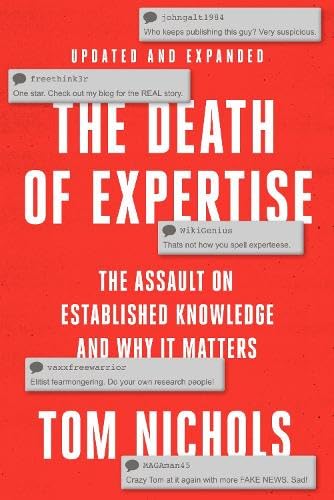
The Death of Expertise: The Campaign Against Established Knowledge and Why It Matters
Thomas M. Nichols, Tom Nichols
Building on his enormously successful first edition, Tom Nichols confirms his thesis that events, such as the COVID pandemic, prove that the assault on expertise has only intensified. Fully updated chapters continue to address how technology and increasing levels of education have exposed people to more information than ever before. These societal gains, however, have also helped fuel a surge in narcissistic and misguided intellectual egalitarianism that has crippled informed debates on any number of issues. Over the past several years, the rise of populism and conspiracy theories have taken this to new levels. All voices, even the most ridiculous, demand to be taken with equal seriousness, and any claim to the contrary is dismissed as undemocratic elitism. Tom Nichols' The Death of Expertise , Second Edition, follows up on how this rejection of experts has the openness of the internet, the emergence of a customer satisfaction model in higher education, the transformation of the news industry into a 24-hour entertainment machine, and importantly, the election of Donald Trump. Paradoxically, the increasingly democratic dissemination of information, rather than producing an educated public, has instead created an army of ill-informed and angry citizens who denounce intellectual achievement. When ordinary citizens believe that no one knows more than anyone else, democratic institutions themselves are in danger of falling either to populism or to technocracy or, in the worst case, a combination of both.
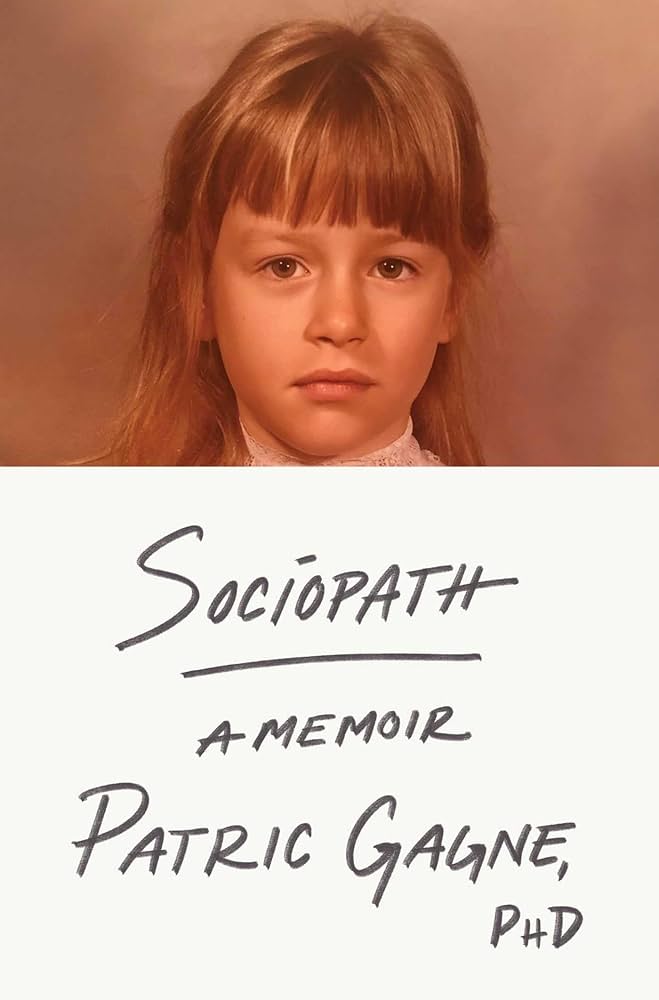
Sociopath: A Memoir
Patric Gagne
A fascinating, revelatory memoir revealing the author’s struggle to come to terms with her own sociopathy and shed light on the often maligned and misunderstood mental disorder. Patric Gagne realized she made others uncomfortable before she started kindergarten. Something about her caused people to react in a way she didn’t understand. She suspected it was because she didn’t feel things the way other kids did. Emotions like fear, guilt, and empathy eluded her. For the most part, she felt nothing. And she didn’t like the way that “nothing” felt. She did her best to pretend she was like everyone else, but the constant pressure to conform to a society she knew rejected anyone like her was unbearable. So Patric stole. She lied. She was occasionally violent. She became an expert lock-picker and home-invader. All with the goal of replacing the nothingness with...something. In college, Patric finally confirmed what she’d long suspected. She was a sociopath. But even though it was the very first personality disorder identified—well over 200 years ago—sociopathy had been neglected by mental health professionals for decades. She was told there was no treatment, no hope for a normal life. She found herself haunted by sociopaths in pop culture, madmen and evil villains who are considered monsters. Her future looked grim. But when Patric reconnects with an old flame, she gets a glimpse of a future beyond her diagnosis. If she’s capable of love, it must mean that she isn’t a monster. With the help of her sweetheart (and some curious characters she meets along the way) she embarks on a mission to prove that the millions of Americans who share her diagnosis aren’t all monsters either. This is the inspiring story of her journey to change her fate and how she managed to build a life full of love and hope.
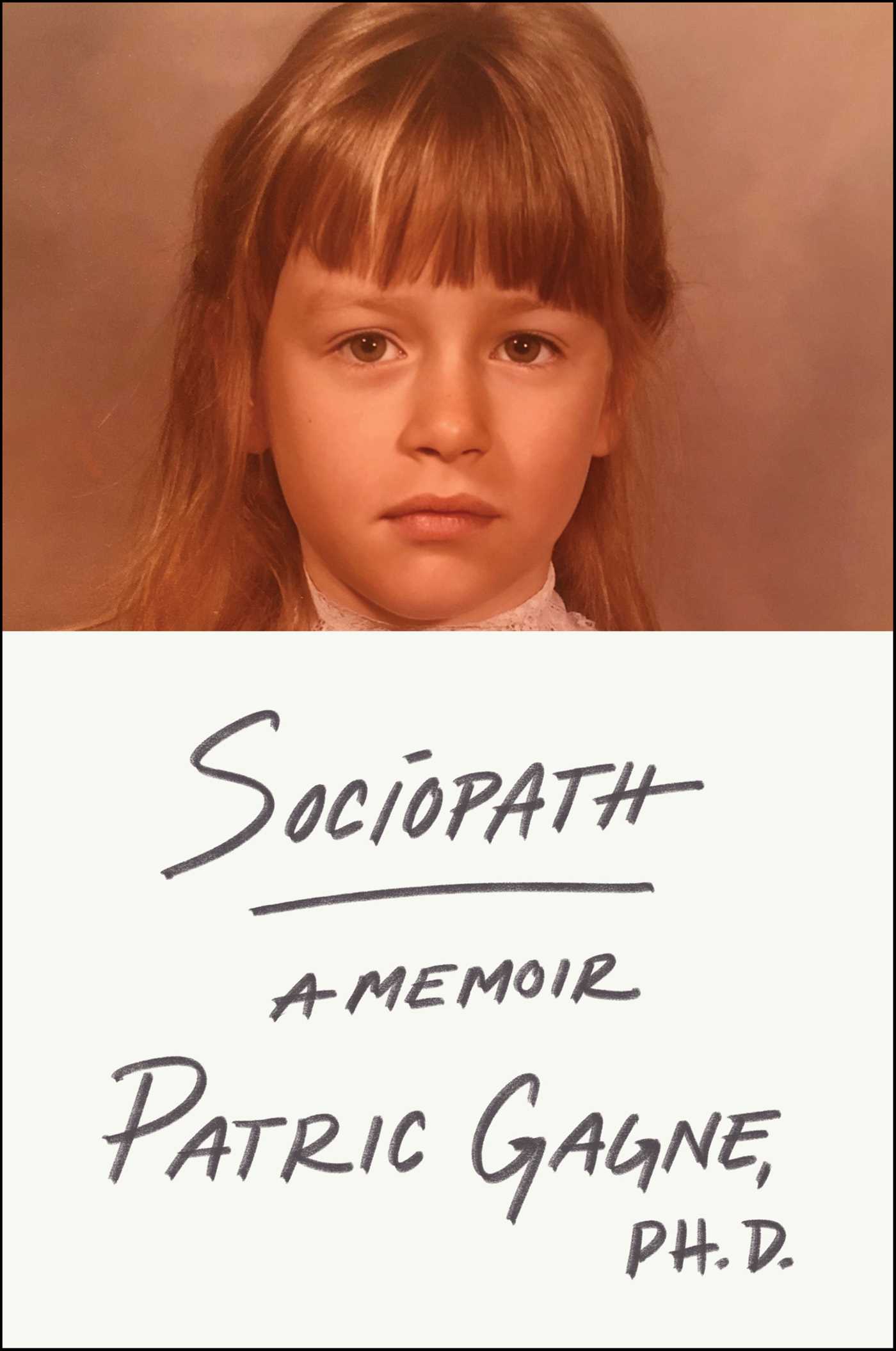
Sociopath
Patric Gagne
A fascinating, revelatory memoir revealing the author’s struggle to come to terms with her own sociopathy and shed light on the often maligned and misunderstood mental illness. Patric Gagne realized she made others uncomfortable before she even started kindergarten. Something about her caused people to react in a way she didn’t understand. She suspected it was because she didn’t feel things the way other kids did. Emotions like fear, guilt, and empathy eluded her. For the most part, she felt nothing. And she didn’t like the way that “nothing” felt. She did her best to pretend she was like everyone else, but the constant pressure to conform to a society that she knew rejected anyone like her was unbearable. So Patric stole. She lied. She was occasionally violent. She became an expert lock-picker and home-invader. All with the goal of replacing the nothingness with…something. In college, Patric finally confirmed what she’d long suspected. She was a sociopath. But even though it was the very first personality disorder identified—well over 200 years ago—sociopathy has been neglected by mental health professionals for decades. She was told there was no treatment, no hope for a normal life. She found herself haunted by sociopaths in pop culture, madmen, villains, and monsters. Her future looked grim. But when Patric reconnects with an old flame, she gets a glimpse of a future beyond her diagnosis. If she’s capable of love, it must mean that she isn’t a monster. With the help of her sweetheart (and some curious characters she meets along the way) she embarks on a mission to prove that the millions of Americans who share her diagnosis aren’t all monsters either.
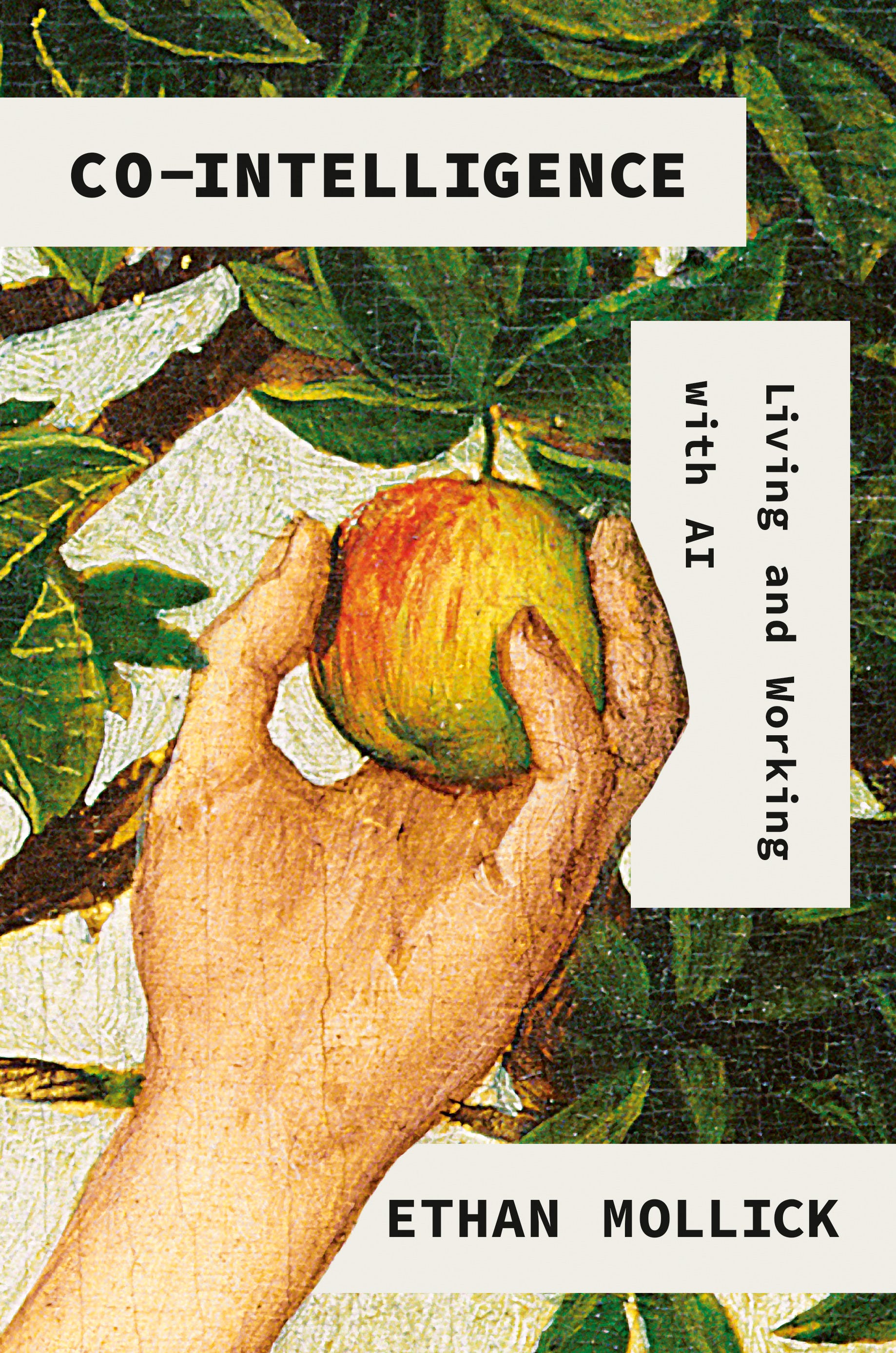
Co-Intelligence: Living and Working with AI
Ethan Mollick
Consumer AI arrived with a bang in November 2022 when OpenAI released ChatGPT. Within four months it hit 1 billion users, and media pundits were forecasting the end of jobs and a knowledge revolution. But its actual impact has been far different from what pundits predicted. Ethan Mollick has been a leading voice cutting through both the AI evangelists and the AI doommongers, by charting and explaining how Consumer AI is developing, what it can do well and also - importantly - what it can't . Considering AI as a coworker, a teacher, an expert, and even as a companion, Mollick grapples with the philosophical, social, and economic implications of integrating artificial intelligence into society and culture and offers reassurance about the role and responsibility of humans in directing and protecting against AI. This is the indispensable -- and understandable -- guide to working with ubiquitous and near-omniscient AI. Always insightful and clearsighted, Mollick opens our eyes to both the dangers and opportunities of the AI revolution. To put it in ChatGPT's own words, this book is about " how to open your mind to these different kinds of intelligence. How to ask them smart questions that will reveal their wisdom and avoid their lies. How to learn from them without losing your identity or autonomy. How to benefit from them without being exploited or threatened by them ."
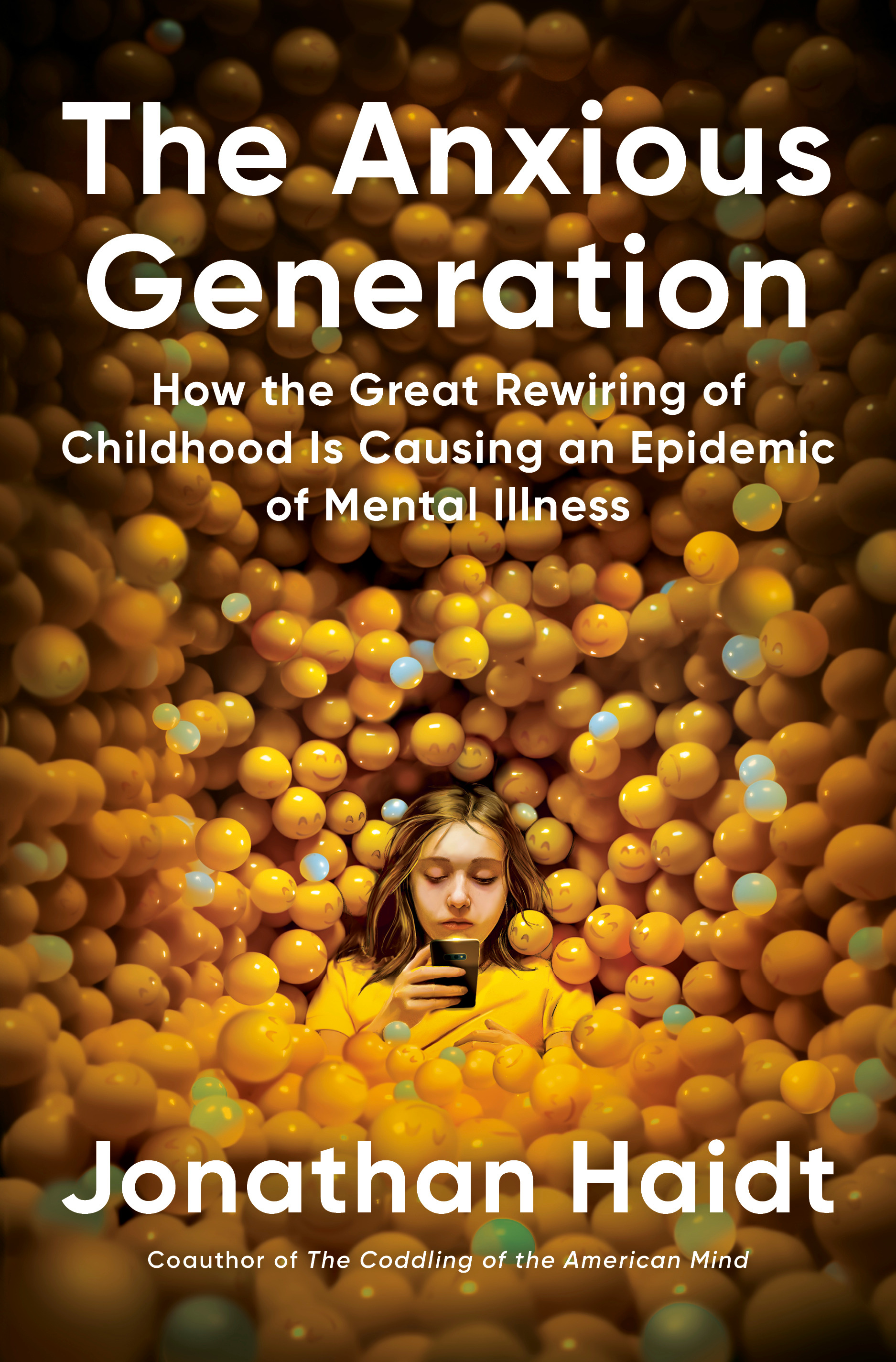
The Anxious Generation: How the Great Rewiring of Childhood Caused an Epidemic of Mental Illness
Jonathan Haidt
THE INSTANT #1 NEW YORK TIMES BESTSELLER • A Wall Street Journal Top 10 Book of 2024 • A Washington Post Notable Book • A New York Times Notable Book • The Goodreads Choice Award Nonfiction Book of the Year A must-read for all parents: the generation-defining investigation into the collapse of youth mental health in the era of smartphones, social media, and big tech—and a plan for a healthier, freer childhood. “With tenacity and candor, Haidt lays out the consequences that have come with allowing kids to drift further into the virtual world . . . While also offering suggestions and solutions that could help protect a new generation of kids.” —Shannon Carlin, ,i>TIME, 100 Must-Read Books of 2024 After more than a decade of stability or improvement, the mental health of adolescents plunged in the early 2010s. Rates of depression, anxiety, self-harm, and suicide rose sharply, more than doubling on many measures. Why? In The Anxious Generation, social psychologist Jonathan Haidt lays out the facts about the epidemic of teen mental illness that hit many countries at the same time. He then investigates the nature of childhood, including why children need play and independent exploration to mature into competent, thriving adults. Haidt shows how the “play-based childhood” began to decline in the 1980s, and how it was finally wiped out by the arrival of the “phone-based childhood” in the early 2010s. He presents more than a dozen mechanisms by which this “great rewiring of childhood” has interfered with children’s social and neurological development, covering everything from sleep deprivation to attention fragmentation, addiction, loneliness, social contagion, social comparison, and perfectionism. He explains why social media damages girls more than boys and why boys have been withdrawing from the real world into the virtual world, with disastrous consequences for themselves, their families, and their societies. Most important, Haidt issues a clear call to action. He diagnoses the “collective action problems” that trap us, and then proposes four simple rules that might set us free. He describes steps that parents, teachers, schools, tech companies, and governments can take to end the epidemic of mental illness and restore a more humane childhood. Haidt has spent his career speaking truth backed by data in the most difficult landscapes—communities polarized by politics and religion, campuses battling culture wars, and now the public health emergency faced by Gen Z. We cannot afford to ignore his findings about protecting our children—and ourselves—from the psychological damage of a phone-based life.
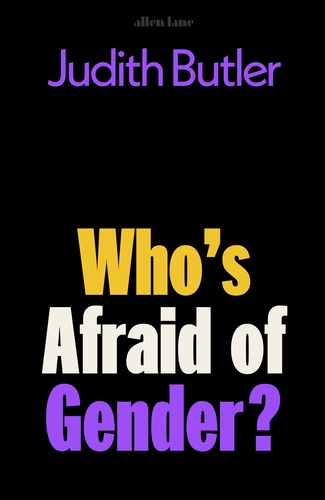
Who's Afraid of Gender?
Judith Butler
Judith Butler, the ground-breaking philosopher whose influential work has redefined how we think about gender and sexuality, confronts the attacks on gender that have become central to right-wing movements today. Global networks have formed "anti-gender ideology movements" dedicated to circulating a fantasy that gender is a dangerous threat to families, local cultures, civilization --and even "man" himself. Inflamed by the rhetoric of public figures, this movement has sought to abolish reproductive justice, undermine protections against violence, and strip trans and queer people of their rights.But what, exactly, is so scary about gender? In this vital, courageous book, Butler carefully examines how "gender" has become a phantasm for emerging authoritarian regimes, fascist formations, and transexclusionary feminists. They illuminate the concrete ways that this phantasm displaces anxieties and fears of destruction. Operating in tandem with deceptive accounts of critical race theory and xenophobic panics about migration, the anti-gender movement demonizes struggles for equality, fuels aggressive nationalism, and leaves millions of people vulnerable to subjugation.An essential intervention into one of the most fraught issues of our moment, Who's Afraid of Gender? is a bold call to make a broad coalition with all those whose struggle for equality is linked with fighting injustice. Imagining new possibilities for both freedom and solidarity, Butler offers us an essentially hopeful work that is both timely and timeless.
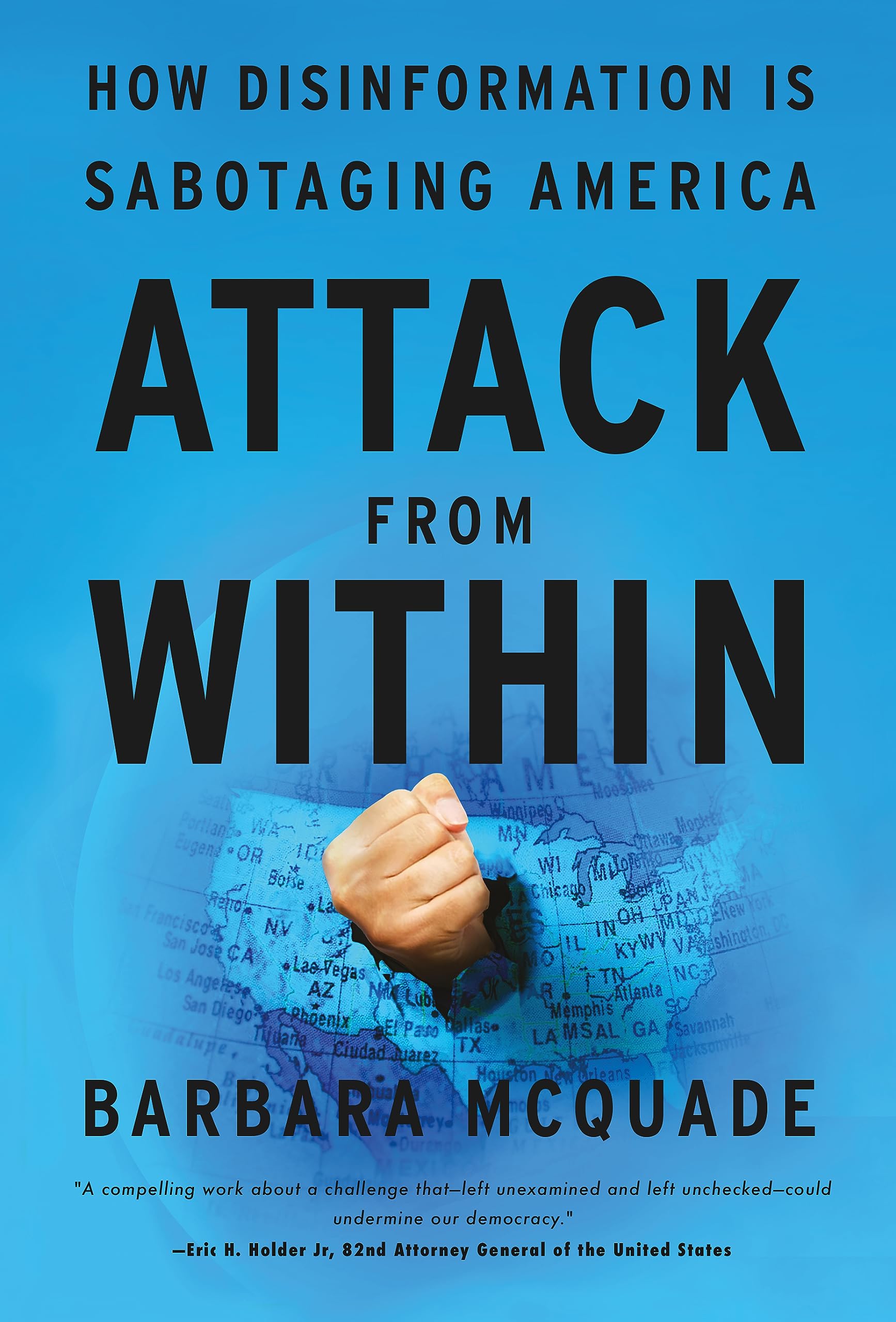
Attack from Within: How Disinformation Is Sabotaging America
Barbara McQuade
An urgent, comprehensive explanation of the ways disinformation is impacting democracy, and practical solutions that can be pursued to strengthen the public, media, and truth-based politics MSNBC's legal expert breaks down the ways disinformation has become a tool to drive voters to extremes, disempower our legal structures, and consolidate power in the hands of the few. "One of the most acute observers of our time shares . . . a compelling work about a challenge that—left unexamined and left unchecked—could undermine our democracy." —Eric H. Holder Jr, 82nd Attorney General of the United States American society is more polarized than ever before. We are strategically being pushed apart by disinformation—the deliberate spreading of lies disguised as truth—and it comes at us from all opportunists on the far right, Russian misinformed social media influencers, among others. It's endangering our democracy and causing havoc in our electoral system, schools, hospitals, workplaces, and in our Capitol. Advances in technology including rapid developments in artificial intelligence threaten to make the problems even worse by amplifying false claims and manufacturing credibility. In Attack from Within , legal scholar and analyst Barbara McQuade, shows us how to identify the ways disinformation is seeping into all facets of our society and how we can fight against it. The book Disinformation is designed to evoke a strong emotional response to push us toward more extreme views, unable to find common ground with others. The false claims that led to the breathtaking attack on our Capitol in 2020 may have been only a dress rehearsal. Attack from Within shows us how to prevent it from happening again, thus preserving our country’s hard-won democracy.
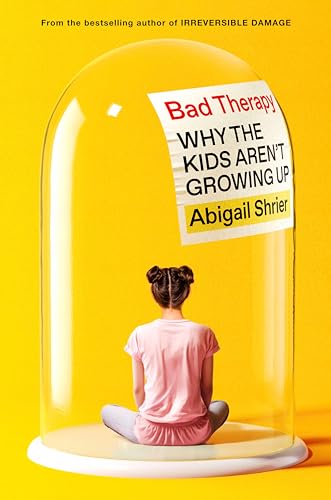
Bad Therapy: Why the Kids Aren't Growing Up
Abigail Shrier
From the author of Irreversible Damage, an investigation into a mental health industry that is harming, not healing, American children In virtually every way that can be measured, Gen Z’s mental health is worse than that of previous generations. Youth suicide rates are climbing, antidepressant prescriptions for children are common, and the proliferation of mental health diagnoses has not helped the staggering number of kids who are lonely, lost, sad and fearful of growing up. What’s gone wrong with America’s youth? In Bad Therapy, bestselling investigative journalist Abigail Shrier argues that the problem isn’t the kids—it’s the mental health experts. Drawing on hundreds of interviews with child psychologists, parents, teachers, and young people, Shrier explores the ways the mental health industry has transformed the way we teach, treat, discipline, and even talk to our kids. She reveals that most of the therapeutic approaches have serious side effects and few proven benefits. Among her unsettling findings: - Talk therapy can induce rumination, trapping children in cycles of anxiety and depression - Social-emotional learning handicaps our most vulnerable children, in both public schools and private - "Gentle parenting" can encourage emotional turbulence—even violence—in children as they lash out, desperate for an adult in charge Mental health care can be lifesaving when properly applied to children with severe needs, but for the typical child, the cure can be worse than the disease. Bad Therapy is a must-read for anyone questioning why our efforts to bolster America’s kids have backfired—and what it will take for parents to lead a turnaround.
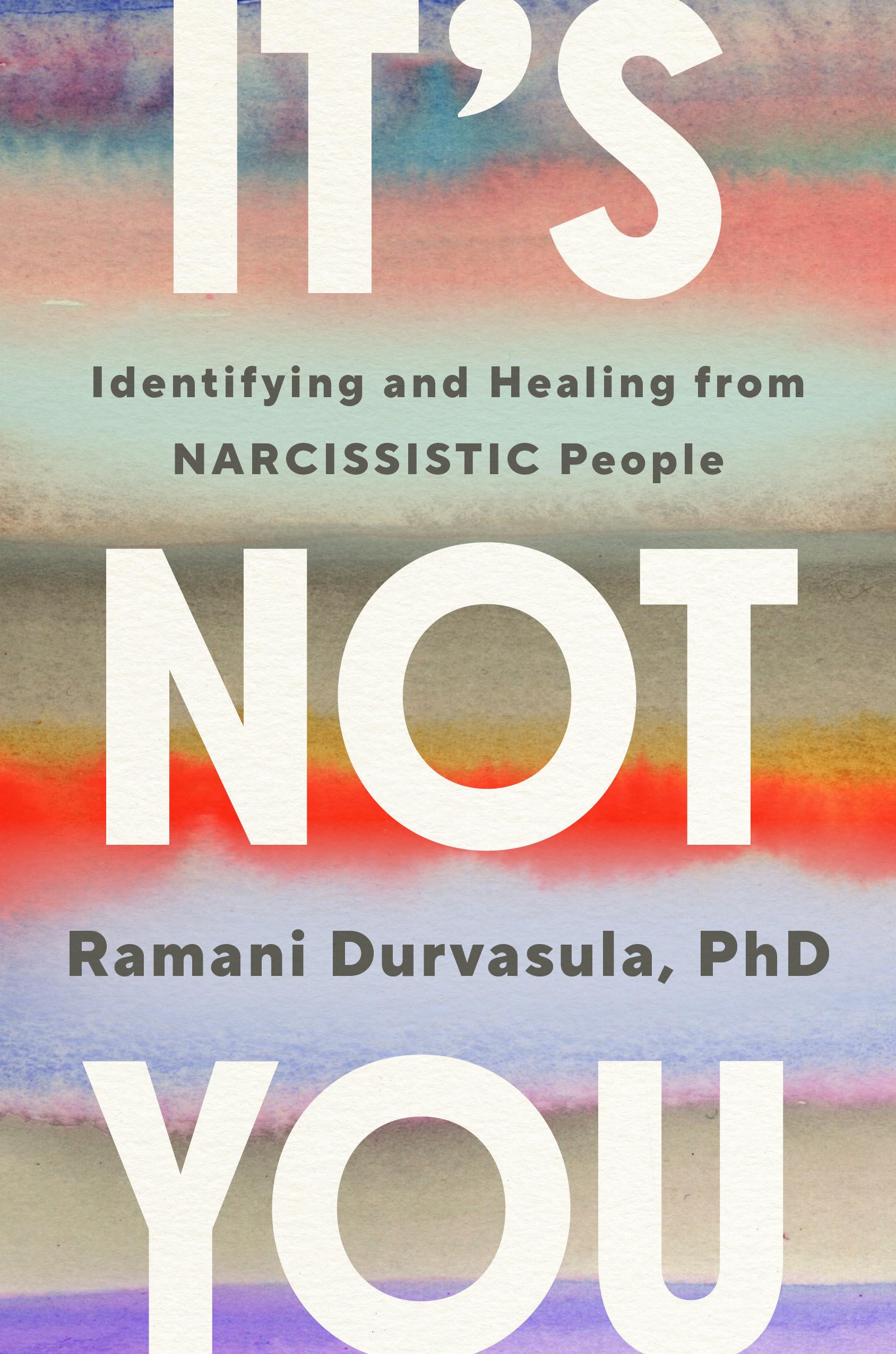
It's Not You: Identifying and Healing from Narcissistic People
Ramani Durvasula
A transformative guide to protecting and healing yourself from the narcissism you can’t see, from psychologist and preeminent narcissism expert Dr. Ramani Durvasula It’s not always easy to tell when you’re dealing with a narcissist. One day they draw you in with their confidence and charisma, the next they gaslight you, wreck your self-confidence, and leave you wondering, What could I have done differently? As Dr. Ramani Durvasula reveals in It's Not You , the answer absolutely nothing. Just as a tiger can’t change its stripes, a narcissist won’t stop manipulating and invalidating you. To heal in the aftermath of their abuse and protect yourself from future harm, you first have to accept that you are not to blame. Deeply compassionate and revelatory, It’s Not You examines how narcissists hijack our wellbeing and offers a healing path forward. Drawing on more than 20 years of studying, teaching, and helping clients navigate the landscape of narcissism, Dr. Durvasula unpacks the oft-misunderstood personality, showing how to identify the telltale signs that you may be dealing with a narcissist and protect yourself from their toxic influence. Along the way, you’ll learn how to become gaslight resistant, chip away at the trauma bonds that keep us stuck in these cycles, grieve the losses, create realistic boundaries, learn the fine art of discernment, and recover your sense of self after years of invalidation. Healing and thriving after or even during a narcissistic relationship can be challenging, but it is possible. It's Not You shows that the first step is to stop trying to change the narcissistic person, stop blaming yourself, and start giving yourself permission to foster your autonomy and sense of self outside of this relationship.